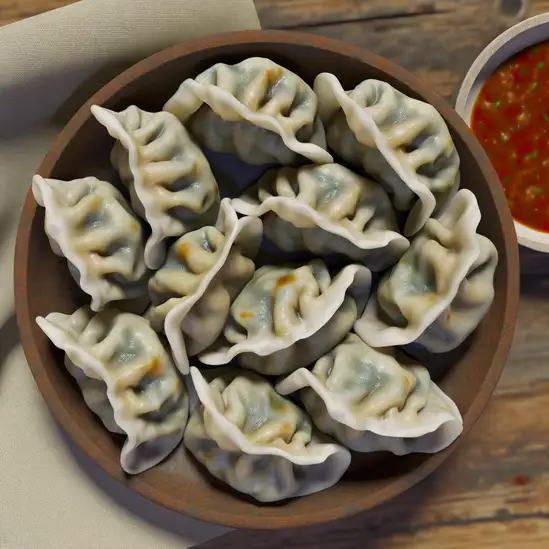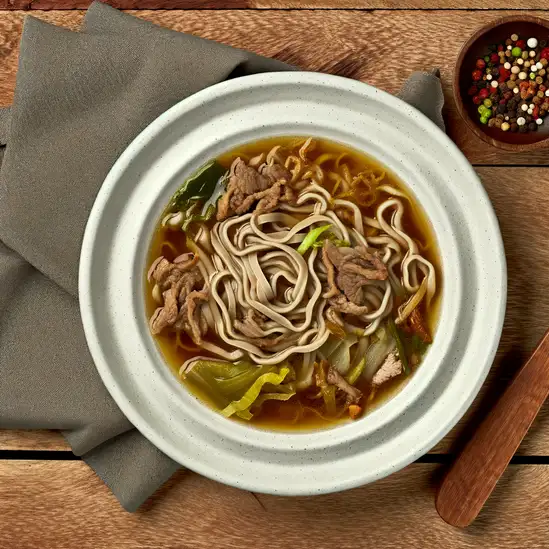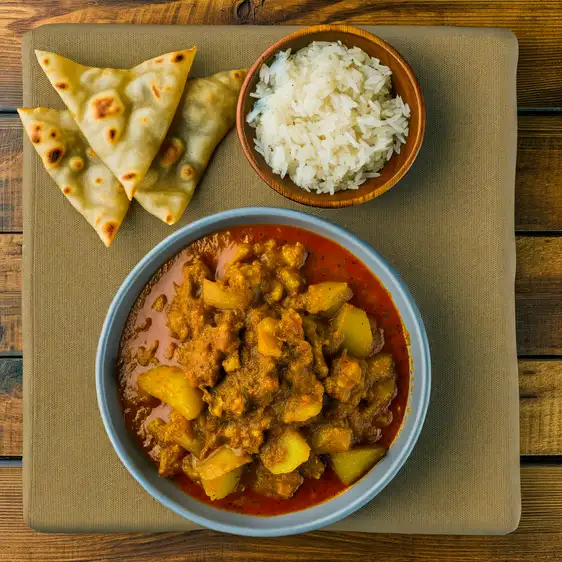



If you ever find yourself craving a breath of fresh mountain air mixed with a dash of old-world charm,Darjeeling is where you want to be. There’s this gentle,almost magical calm that wraps around you as soon as you step off the train or bus. The town perches on rolling hills,and on clear mornings,you’re treated to the breathtaking sight of the snow-capped Kanchenjunga peak,standing tall and proud like a silent guardian. Walking through the narrow streets,you’ll hear the chatter of locals,the clinking of tea cups,and the distant whistle of the famous Darjeeling Himalayan Railway—a sound that feels like a heartbeat of the town itself. The air here carries the earthy scent of tea leaves drying in the sun,mingled with the faint aroma of spices from street vendors selling momos and thukpa. Speaking of tea,sipping a cup of Darjeeling tea while watching the mist roll over the valleys is an experience that stays with you. The town’s character is a beautiful blend of Tibetan,Nepali,and Bengali cultures,reflected in its colorful monasteries,bustling markets,and warm,welcoming people who are always ready to share a story or a smile. What makes Darjeeling truly special is its pace—unhurried yet alive. Whether you’re wandering through the vibrant Chowrasta square,exploring tea gardens,or catching a sunrise at Tiger Hill,there’s a sense of connection to nature and tradition that’s rare to find. It’s a place that invites you to slow down,breathe deeply,and soak in the simple,stunning moments.
The information on this page is currently being reviewed by Tripkliq and should be used as a guide only
Eng word: Hello
Eng pronunciation: Namaste
Local language: नमस्ते
Eng word: Goodbye
Eng pronunciation: Bidaai
Local language: विदाई
Eng word: Thank you
Eng pronunciation: Dhanyabad
Local language: धन्यवाद
Eng word: How much
Eng pronunciation: Kati
Local language: कति
Eng word: Toilet
Eng pronunciation: Shauchalaya
Local language: शौचालय
Eng word: Help me
Eng pronunciation: Malai maddat garnuhos
Local language: मलाई मद्दत गर्नुहोस्
Eng word: Yes
Eng pronunciation: Ho
Local language: हो
Eng word: No
Eng pronunciation: Hoin
Local language: होइन
Eng word: Excuse me
Eng pronunciation: Maaf garnuhos
Local language: माफ गर्नुहोस्
The history of Darjeeling is intertwined with the Gorkhas' conquest of the region in the 18th century and its eventual cession to the British East India Company in 1817.
The name 'Darjeeling' possibly originates from the Tibetan words 'Dorje', meaning thunderbolt, and 'ling', meaning place or land, translating to 'The land of the thunderbolt'.
The British introduced tea cultivation in the mid-19th century, transforming Darjeeling into a major tea producing area, famous for its Darjeeling Tea worldwide.
In 1881, the Darjeeling Himalayan Railway, also known as the 'Toy Train', was established. It is now a UNESCO World Heritage Site and a major tourist attraction.
The British established various prestigious educational institutions during the 19th century, making Darjeeling a hub for quality education.
During the British Raj, Darjeeling served as the summer capital of Bengal due to its cooler climate, attracting British officials and aristocracy.
The Himalayan Mountaineering Institute was established in 1954, following Tenzing Norgay's historic ascent of Mount Everest, to encourage mountaineering among the youth.
The Padmaja Naidu Himalayan Zoological Park was opened in 1958 for the conservation and breeding of Himalayan flora and fauna, including the endangered Snow Leopard and Red Panda.
Darjeeling Tea received a Geographical Indication tag in 2004, recognizing its unique quality and geographic origin.
In Darjeeling, the most common Power Adaptor is Type C, Type D.



Momos are a popular Tibetan dish in Darjeeling, consisting of steamed dumplings filled with vegetables or meat, served with a spicy dipping sauce.

Thukpa is a hearty noodle soup with vegetables, meat, and a flavorful broth, commonly enjoyed in Darjeeling during the colder months.

Aloo Dum is a spicy potato curry dish that is often served with puris or rice in Darjeeling, offering a delicious and filling meal.

Sel Roti is a traditional Nepali sweet bread made from rice flour and sugar, often enjoyed as a snack or dessert in Darjeeling.
If you ever find yourself craving a place where the air feels fresher and the pace slows just enough to savor every moment,Kalimpong is that kind of town. Nestled in the rolling hills of West Bengal,it’s a charming blend of vibrant markets,colonial-era architecture,and lush greenery that wraps around you like a cozy blanket. Walking through its narrow streets,you’ll hear the gentle chatter of locals,the occasional clink of tea cups,and the distant hum of prayer bells from the monasteries perched on the hillsides.
The scent of blooming rhododendrons mingles with the earthy aroma of fresh pine,and if you’re lucky,you’ll catch the sweet fragrance of ripe oranges from the orchards nearby. The town’s colorful bazaars are alive with the chatter of vendors selling everything from handwoven woolens to intricate Tibetan handicrafts. Don’t miss trying the local momos—steamed just right,juicy and bursting with flavor,they’re the perfect comfort food after a day of exploring.
What really makes Kalimpong special is its warm,laid-back vibe. It’s a place where cultures blend effortlessly—Tibetan,Nepali,Bengali—and where every corner feels like a story waiting to be discovered. Whether you’re sipping butter tea in a quiet café or watching the sun dip behind the Kanchenjunga peaks,Kalimpong invites you to slow down,breathe deeply,and soak in a world that feels both timeless and refreshingly alive.
If you ever find yourself craving a place where the mountains seem to whisper stories and the air carries a crisp freshness that instantly clears your mind,Gangtok is where you should be. Nestled in the lap of the Eastern Himalayas,this city has a gentle,unhurried rhythm that feels like a warm hug after a long journey. Walking through its streets,you’ll catch the vibrant chatter of locals blending with the distant toll of monastery bells,creating a soundtrack that’s both lively and soothing.
The colors here are something else—bright prayer flags fluttering against the deep green of pine forests,the rich reds and golds of Buddhist monasteries,and the soft pastels of quaint shops selling handmade crafts and aromatic teas. Speaking of tea,sipping a steaming cup of Sikkim’s famous brew while gazing at the snow-capped peaks is an experience that stays with you. The scent of fresh pine mingles with spices from street vendors offering momos and thukpa,tempting your taste buds with every bite.
What really makes Gangtok special is its blend of tradition and warmth. The people here carry a quiet pride in their culture,welcoming visitors with genuine smiles and stories that invite you to slow down and savor the moment. Whether you’re wandering through the bustling MG Road or exploring serene monasteries perched on hillsides,Gangtok feels like a place where nature and humanity exist in perfect harmony,leaving you refreshed and quietly inspired.
A small town in Sikkim,famous for its breathtaking views of the Kanchenjunga range,ancient monasteries,and scenic waterfalls.
ExploreImagine stepping into a place where the air hums with the gentle rhythm of waves lapping against sun-warmed shores,and the scent of salty sea mingles with fragrant street food stalls. That’s Phuket for you—a vibrant island that feels alive in every sense. It’s not just the stunning beaches that grab you,but the way the island pulses with a laid-back energy,where colorful markets buzz with chatter and the aroma of grilled seafood fills the air. Walking through the old town,you’ll find charming Sino-Portuguese buildings painted in pastel hues,their shutters creaking softly in the tropical breeze,while tuk-tuks zip by,adding a playful soundtrack to your explorations.
Phuket’s character is a beautiful blend of tradition and liveliness. Temples with golden spires peek out from lush greenery,inviting quiet moments of reflection,while nearby,night markets burst with life—vendors calling out,sizzling woks,and the sweet tang of mango sticky rice tempting your taste buds. The island’s culture is warm and welcoming,with locals who smile easily and share stories over cups of strong Thai coffee or fresh coconut water.
What makes Phuket truly special is how it wraps you in its embrace—whether you’re watching a fiery sunset from a cliffside bar,diving into crystal-clear waters teeming with vibrant marine life,or simply savoring the spicy kick of a freshly made curry. It’s a place that invites you to slow down,soak in the colors,sounds,and flavors,and leave with a heart full of unforgettable moments.
Bali feels like stepping into a vibrant dream where every corner pulses with life and warmth. From the moment you arrive,there’s this unmistakable energy—part spiritual,part playful—that wraps around you like a soft,tropical breeze. Imagine waking up to the gentle rustle of palm leaves and the distant sound of waves crashing against volcanic black sand beaches. The air carries a mix of frangipani blossoms and salty sea spray,instantly grounding you in the island’s natural beauty.
What really makes Bali special is its rich culture woven into everyday life. You’ll see locals in colorful sarongs offering flowers at temple steps,hear the rhythmic beat of gamelan music drifting through the air,and catch glimpses of intricate wood carvings and vibrant paintings in small artisan shops. The island’s spirituality isn’t just something you observe—it’s something you feel,a quiet presence that invites you to slow down and connect.
And then there’s the food—oh,the food! Freshly grilled satay,fragrant nasi campur bursting with spices,and tropical fruits so sweet they almost taste like candy. Whether you’re dining in a bustling market or a cliffside café overlooking the ocean,every bite feels like a celebration of Bali’s rich flavors and traditions. Honestly,Bali isn’t just a place you visit; it’s a place that stays with you,long after you’ve left.
The capital city of the Maldives,offering a gateway to the country's famous overwater bungalows,crystal-clear waters,and vibrant marine life.
ExploreScammers may pose as representatives of local charities, asking for donations. Always verify the legitimacy of the charity before donating.
Individuals posing as official tour guides may offer their services at tourist spots, providing subpar or incorrect information and charging high fees.
Some tourists may be approached by individuals claiming their hotel booking is invalid or the hotel is overbooked, then redirected to more expensive or lower-quality accommodations.
Taxi drivers may charge exorbitant rates, especially to tourists unfamiliar with local fares. Always negotiate the fare beforehand or insist on using the meter.
Some locals may demand money for taking photographs of them or their property, even if no prior agreement was made. Always ask for permission before taking photos.
Crowded tourist spots can be hotspots for pickpocketing. Tourists should be vigilant and keep their belongings secure.
Tourists may be sold low-quality or fake Darjeeling tea at high prices. It's best to buy tea from reputable stores or plantations.
The use, possession, and trafficking of drugs are strictly prohibited in Darjeeling and the rest of India under the Narcotic Drugs and Psychotropic Substances Act (NDPS) of 1985. Penalties for drug-related offenses are severe and can include long prison sentences and heavy fines. Tourists should avoid any involvement with illegal drugs to avoid legal trouble.
In Darjeeling, as in the rest of India, smoking is prohibited in public places such as restaurants, hotels, public transport, and parks. The Cigarettes and Other Tobacco Products Act (COTPA) of 2003 regulates smoking in public areas. Violators can be fined. Designated smoking areas may be available in some establishments, but it is always best to ask before lighting up.
Vaping is subject to strict regulations in India. The Indian government banned the production, import, sale, and advertisement of e-cigarettes and vaping products in September 2019. Tourists should avoid bringing vaping devices and e-liquids into the country, as possession can lead to legal consequences.
What are other people saying about Darjeeling?
Recent Social posts about Darjeeling
There is nothing to show you for now.